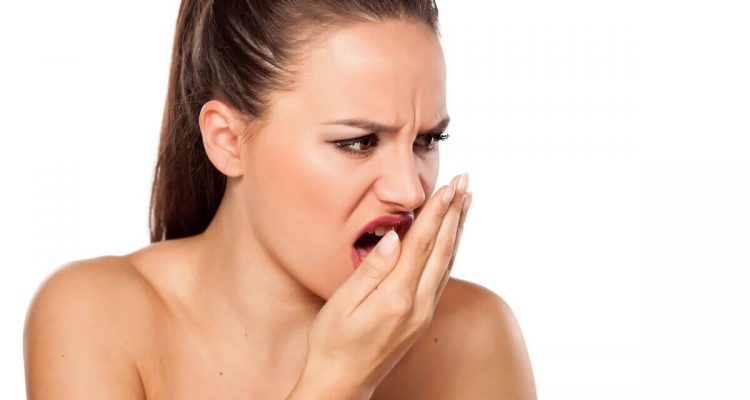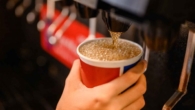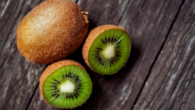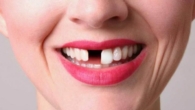
A simple way to get rid of bad breath has been named
0
In most cases, bad breath is associated with bacteria on the teeth and tongue, writes Expressen. The publication cites the opinion of a Swedish dentist, who explains why coffee is involved and whether mouthwashes actually work. The doctor also commented on common myths about the causes of bad breath.
Does coffee make your breath stale and does mouthwash really work?
Dentist and odontologist Karin Sjögren sorts out where the myths are and where the truth is.
“My colleagues, and I, have noticed that during the pandemic, many people’s routines, including hygiene, have completely gone awry. For example, people have begun to neglect oral hygiene. So many will have to do something about the problem of bad breath when society slowly starts to reopen,” she says.
In 80-90% of cases, bad breath is associated with bacteria on the teeth and tongue. And the longer we allow bacteria to do their thing without hindrance, the more they become.
Many people try to capitalize on our fear of bad breath with expensive products, but the best advice here is how to properly clean your mouth with a regular toothbrush and floss.
“You won’t be able to get rid of bacteria completely, but by brushing and flossing your teeth and between your teeth, you will prevent them from multiplying and will also improve blood circulation in your mouth. You can use a special tongue scraper to clean your tongue of plaque,” says Karin Sjögren, a dentist with 30 years of experience.
She notes that many of her patients began to skip brushing their teeth when they began to study and work remotely, and stopped meeting as before. And this has a very strong effect, including on bad breath.
“Some also started to eat an unusually large amount of sweets, candies, cookies, and the like during the pandemic, sitting alone at home. If you constantly add new food residues to your mouth without removing the old ones, of course, it will start to smell sour,” explains Karin Sjögren.
She commented on five common explanations for bad breath.
Garlic makes us smell awful
Partly true. The smell of garlic is not related to bacteria in the mouth, it is caused by substances that enter the bloodstream from garlic and then exit through the lungs.
“Everything you eat and drink has to come out eventually. It can happen through urine, feces, or gas. Or through the lungs, which act as a ventilation hole in our body. But the smell of garlic often disappears after just a couple of hours,” says Karin Sjögren.
Mouthwash and chewing gum help
True, in the short term, but not in the long term. Zinc binds substances that smell bad, and chlorhexidine has an antibacterial effect. Therefore, if you chew special gum or use mouthwash, there will really be a certain quick effect.
“This can increase saliva production and temporarily mask the bad smell. But the main problem won’t go away: you’ll still have decaying bacteria between your chewing teeth, for example. And the longer they stay there, undisturbed, the harder it will be to remove.”
If food debris has been in your mouth for so long that tartar has formed, you’ll need to see a dentist to help you get it cleaned.
Diets affect bad breath
True. When we try to lose weight and diet, our bodies often become dehydrated, which negatively affects saliva production. This increases the risk of food particles getting stuck somewhere in the mouth and causing bad-smelling bacteria to grow. In addition, when we diet, we often get more tired than usual, and if we don't exercise enough, our blood circulation also gets worse, which also affects saliva production.
If you are on a ketogenic diet, for example, after a while your body starts burning fat instead of carbohydrates for energy, and then the body starts to produce acetone. Because of this, your breath suddenly starts to smell like nail polish remover.
“We also notice that problems with the oral cavity and breathing often occur, for example, after gastric bypass surgery (a surgical procedure for treating obesity, which is used to exclude most of the stomach and small intestine from the digestive process – ed. note), because part of the gastrointestinal tract is out of the game, and this disrupts saliva production,” says Karin Sjögren.
Coffee with milk is very harmful
Partially true. In fact, coffee can neutralize bad breath. Some people like its aroma, some don't. However, coffee has a drying effect on the oral cavity and also has a diuretic effect, that is, it removes fluid from the body. And the lack of saliva and dry mouth lead to the fact that food debris and bacteria are washed away worse. If there is also milk in the coffee, your breath can become even worse, since dried coffee particles bind substances from the milk and form plaque on the tongue and teeth.
“Milk bacteria themselves can cause bad breath. If you have bad breath, you may want to reduce your intake of products such as milk, yogurt and cheese, or at least wash them down with water,” advises Karin Sjögren.
Alcohol kills bad breath
Lie. Alcohol dehydrates your body, making you dry. And dry mouth only makes bad breath worse. Alcohol also upsets the balance between good and bad bacteria in your mouth.









Leave a Reply